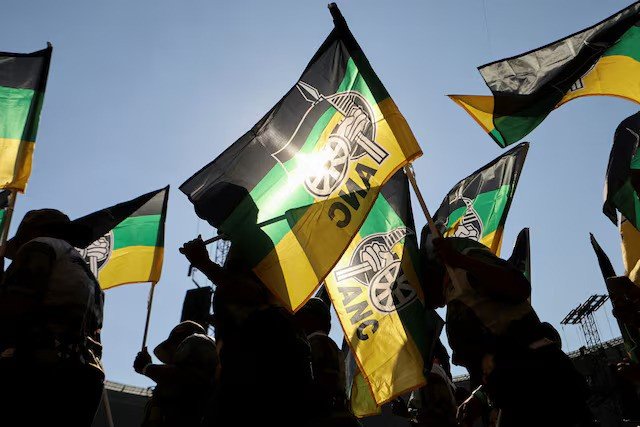South Africans are heading to the polls on Wednesday for the South Africa Election, with growing frustration over power outages, unemployment, and corruption threatening the long-standing dominance of the African National Congress (ANC). This election marks thirty years since Nelson Mandela led the ANC to power, ending white-minority rule.
For the first time since the iconic images of Black South Africans voting after apartheid, the ANC’s hold on power appears vulnerable. Polls indicate that the ANC’s vote share could drop to as low as 40%, down from 57.5% in 2019. This decline could force the party into an unstable coalition with rivals and potentially challenge President Cyril Ramaphosa’s leadership.
However, an Afrobarometer survey released this week showed that a third of voters remain undecided, making this the most unpredictable election in South Africa’s democratic history.
Potential Outcomes and Reactions for South Africa Election
Nicole Beardsworth, a political researcher at the University of the Witwatersrand, believes the ANC might see a slight boost on election day, particularly with Ramaphosa’s recent introduction of popular measures like a national health insurance law and a proposed basic income grant. Despite this, she predicts the ANC will still fall short of a majority, necessitating coalition negotiations.
“The big question is: with whom?” Beardsworth said, noting that the size of the ANC’s losses will determine their coalition partners. A narrow margin might allow a deal with a minor party, but more significant losses could lead to a coalition with the Marxist Economic Freedom Fighters (EFF) or several small parties, complicating decision-making.
Some believe that electoral punishment could prompt the ANC to reform. Independent analyst Ralph Mathekga suggested, “A different party might come out of it.”
For thirty years, the ANC has relied on its legacy of liberating the Black majority from apartheid, providing electricity, water, and housing. Yet, corruption and incompetence have undermined these achievements. Frequent blackouts, deteriorating infrastructure, and a 33% unemployment rate have left many disillusioned.
“I don’t see what I’m voting for. We don’t have roads or decent houses,” said 31-year-old Zinhle Nyakenye from Mandela’s hometown of Qunu.
Despite these challenges, South Africa’s strong rule of law has led to legal actions against powerful figures like former president Jacob Zuma. However, Zuma’s creation of a breakaway party could further split the ANC’s vote in its Zulu stronghold.
The country’s robust legal system ensures clear rules for coalition building, despite the inexperience of the players. As Chris Vandome from Chatham House remarked, “South Africa’s system was designed so that political parties in a very fractured country could work together. It was never designed for a dominant party to maintain absolute control for 30 years.”

